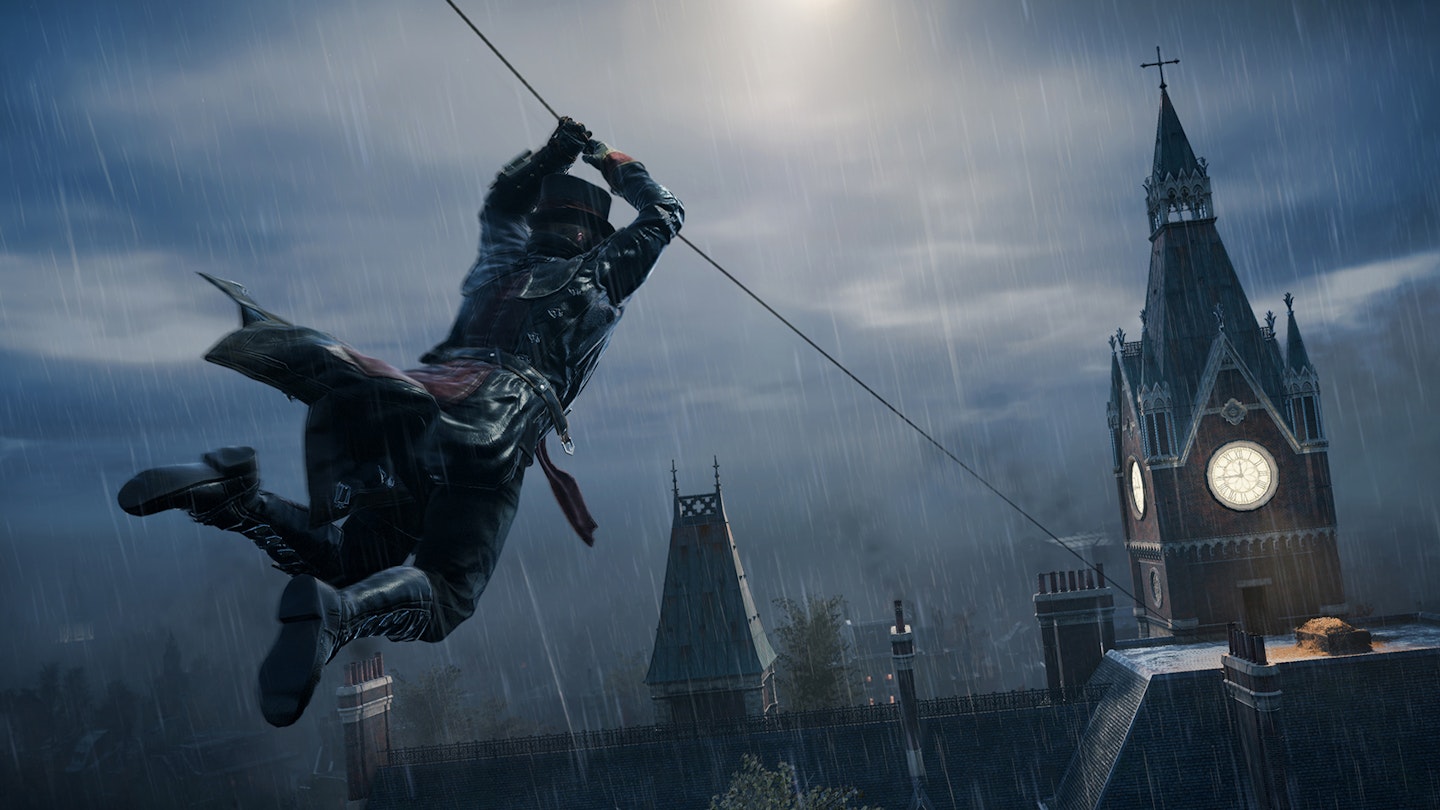In the world of games development, success can bring immense pressure, as last year’s Assassin’s Creed Unity, which was an unholy, buggy mess, showed. But the annual franchise that Assassin’s Creed has become rumbles on and, happily, this year’s iteration, Syndicate, offers clear evidence that publisher Ubisoft realised that drastic action had to be taken. Thus, it adopted a back-to-basics approach, stripping out the rather superfluous online and co-operative modes in order to focus on what actually makes Assassin’s Creed games worth playing.
The result is a big return to form: aided hugely by Syndicate’s setting, which is a gloriously evocative London in 1868, replete with grimy, Dickensian, guttersnipe-filled alleyways in the east; heavy industry south of the river; and the imposing, gentry-filled environs of Westminster. Syndicate only maps a small part of London, but it does so incredibly convincingly – to the extent that London inhabitants will spend hours seeking out still-familiar areas, along with some that have been truncated to keep the gameplay area manageable. But while the architecture impresses, it’s the way that the city throbs with life that really sucks you in – and leaves the impression that London is the game’s real star.
Another change to the tried and tested Assassin’s Creed formula sees the introduction of two playable protagonists, between whom you can swap at any point. Jacob and Evie Frye are brother and sister, impatient to leave the backwater of Crawley and head up to London. They have different agendas: Jacob wants to free London from the iron grip of the Templars, headed by evil industrialist Crawford Starrick, while Evie is keen to track down the Pieces of Eden that she has traced. They team up with fellow assassin Henry Green and establish a base on a train that cruises around the city.
Playing with two characters adds a new dimension, since Evie majors on stealth while Jacob is an accomplished brawler. Cleverly, they have separate skill trees, so you can take them in thoroughly different directions when you upgrade, and each has a few unique skills. Picking which character to take on each mission adds a welcome element of strategy. But you may end up favouring Jacob, since the combat engine has been notably updated, with some fearsome combos on offer, and some great new weapons like hallucinogenic darts that set enemies against each other, or voltaic bombs that stun groups of enemies.
Jacob also decides to set up a gang called the Rooks – to take on Starrick’s gang, the unfortunately named Blighters – and that adds an extra new dynamic above and beyond the myriad missions, side-missions and crowd occurrences, since it means you can take over London district by district. Finding gang strongholds involves climbing to vantage-points and synchronising. But the exercise is worthwhile, since gangs of Rooks can be invaluable when you take on tough missions. And a gang upgrade engine brings handy perks, such as pubs that bring in income and the ability to pay off policemen and intimidate Blighters. A decent crafting engine provides further opportunities for tinkering.
Story-wise, Syndicate sticks to the successful Assassin’s Creed format. Which, typically, involves various encounters with historical figures including Charles Darwin, Charles Dickens, Alexander Graham Bell, Benjamin Disraeli and Florence Nightingale. History-sticklers will struggle to swallow those encounters, as none of them acts even remotely like they would have done in real life, and they all speak in an uncomfortably 21st-century manner, but they provide plenty of entertaining what-if escapism for those who can suspend disbelief. The fictional characters you meet (and assassinate one by one) in Syndicate are much more interesting, and the story is as gothic and labyrinthine as the game’s setting demands. Countless side-missions, along with random occurrences on the streets that you can choose to ignore, provide an extremely meaty experience.
Syndicate’s gameplay mixes stealth, brawling, assassinations, a modicum of puzzle-solving and lashings of parkour-style rooftop-running, in classic Assassin’s Creed fashion. A couple of new additions freshen up proceedings: most notably a really handy rope-grapple, which lets you flow across rooftops separated by wide streets, and the ability to hijack horse-drawn carriages, which add a low-speed Grand Theft Auto vibe to the mix.
It has to be said that Assassin’s Creed Syndicate isn’t entirely bug-free, although it’s nowhere near as egregiously glitchy as Unity. The only problems we encountered while playing Syndicate on the Xbox One involved weird behaviour from some AI characters – the sort of bugs to be expected in a large and ambitious game. There have been reports of frame-rate and slowdown issues on the PlayStation 4 version, which really shouldn’t happen in this day and age, but should be easily fixable via patches. However, the Xbox One version of the game exhibited no such issues.
Overall, Syndicate is the best Assassin’s Creed game for years. It’s thoroughly absorbing and immersive to play – the gameplay tweaks, if anything, encourage you to surrender yourself more deeply to it – and wisely restricts itself to providing the very essence of Assassin’s Creed’s archetypal gameplay. And the superb evocation of Victorian London marks it down as a classic slice of escapism – the sort of stuff that games are all about. If you’re an Assassin’s Creed fan, you will love it.
